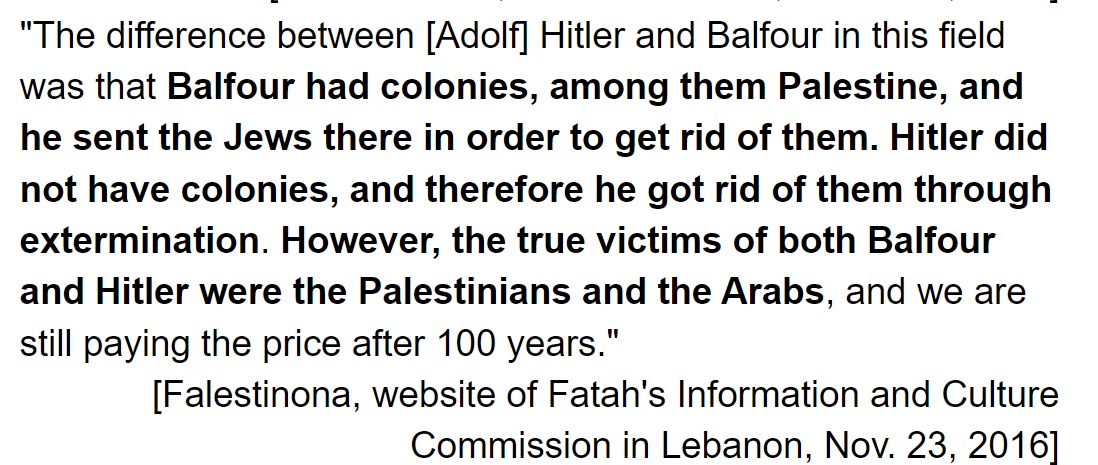.jpg) |
| Author James Baldwin (Allan warren, CC BY-SA 3.0, via Wikimedia Commons) |
In
1967, the New York Times published an essay by famed American author James
Baldwin. At 3820 words, Negroes
Are Anti-Semitic Because They're Anti-White is perhaps the lengthiest anti-Jewish
screed ever published by a major, mainstream American newspaper.
The
Baldwin essay is notable for the fact that it could have been written today. Except for the use of the word “Negro”
nothing much has changed between then and our Ye-infused present. All the usual
tropes are there: the Jews are rich, they’re white, they control the world.
They use their past suffering to exploit the black man. The Jew is a slumlord, or
a butcher who demands exorbitant fees for bad meat. The victims are always black:
When we were growing up in Harlem our demoralizing series of
landlords were Jewish, and we hated
them. We hated them because they were terrible landlords, and did not take
care of the building. A coat of paint, a broken window, a stopped sink, a
stopped toilet, a sagging floor, a broken ceiling, a dangerous stairwell, the
question of garbage disposal, the question of heat and cold, of roaches and
rats--all questions of life and death for the poor, and especially for those
with children--we had to cope with all of these as best we could. Our parents
were lashed to futureless jobs, in order to pay the outrageous rent. We knew
that the landlord treated us this way only because we were colored, and he knew
that we could not move out.
The grocer was a Jew, and being in debt to him was very much
like being in debt to the company store. The butcher was a Jew and, yes, we
certainly paid more for bad cuts of meat than other New York citizens, and we
very often carried insults home, along with the meat. We bought our clothes
from a Jew and, sometimes, our secondhand shoes, and the pawnbroker was a
Jew--perhaps we hated him most of all. The merchants along 125th Street were
Jewish--at least many of them were; I don't know if Grant's or Woolworth's are
Jewish names--and I well remember that it was only after the Harlem riot of
1935 that Negroes were allowed to earn a little money in some of the stores
where they spent so much.
Not all of these
white people were cruel--on the contrary, I remember some who were certainly as
thoughtful as the bleak circumstances allowed--but all of them were exploiting
us, and that was why we hated them.
Compare:
Jews are "White"
Baldwin repeatedly refers to Jews as “white,” painting them
the same as, and concurrently worse than, other whites. He doesn’t like it when
Jews compare black and Jewish suffering. He likes it less when told he can rise
above it. He can’t, because he’s not white and rich like a Jew:
What
the American Negro interprets the Jew as saying is that one must take the
historical, the impersonal point of view concerning one's life and concerning
the lives of one's kinsmen and children. "We suffered, too," one is
told, "but we came through, and so will you. In time."
In
whose time? One has only one life. One may become reconciled to the ruin of
one's children's lives is not reconciliation. It is the sickness unto death.
And one knows that such counselors are not present on these shores by following
this advice. They arrived here out of the same effort the American Negro is
making: they wanted to live, and not tomorrow, but today. Now, since the Jew is
living here, like all the other white men living here, he wants the Negro to
wait. And the Jew sometimes--often--does this in the name of his Jewishness,
which is a terrible mistake. He has absolutely no relevance in this context as
a Jew. His only relevance is that he is
white and values his color and uses it.
Jews Profit from being White and Christian
Jews,
say Baldwin, claim to have suffered from the same oppression and slaughter as
blacks. But that claim only enrages blacks because clearly Jews have, in
reality, profited from being both white and
Christian (!):
He is singled out by Negroes not because he acts differently from other white men, but because he doesn't. His major distinction is given him by that history of Christendom, which has so successfully victimized both Negroes and Jews. And he is playing in Harlem the role assigned him by Christians long ago: he is doing their dirty work. . .
. . . In the American context, the most ironical thing about Negro anti-Semitism is
that the Negro is really condemning the Jew for having become an American white
man--for having become, in effect, a Christian. The Jew profits from his status
in America, and he must expect Negroes to distrust him for it. The Jew does not
realize that the credential he offers, the fact that he has been despised and
slaughtered, does not increase the Negro's understanding. It increases the
Negro's rage.
Black Jew-Hate is "Mutual"
Baldwin justifies black antisemitism by claiming that Jews hate the blacks just
as much as the blacks hate the Jews. The difference is, says Baldwin, that the
Jews use the Holocaust and their support for the Civil Rights Movement to let
them off the hook for their hatred of the “Negro.”:
Of course, it is true, and I am not so naïve as not to know it, that many Jews
despise Negroes, even as their Aryan brothers do. (There are also Jews who
despise Jews, even as their Aryan brothers do.) It is true that many Jews use,
shamelessly, the slaughter of the 6,000,000 by the Third Reich as proof that
they cannot be bigots--or in the hope of not being held responsible for their
bigotry. It is galling to be told by a Jew whom you know to be exploiting you
that he cannot possibly be doing what you know he is doing because he is a Jew.
It is bitter to watch the Jewish storekeeper locking up his store for the
night, and going home. Going, with your money in his pocket, to a clean
neighborhood, miles from you, which you will not be allowed to enter. Nor can
it help the relationship between most Negroes and most Jews when part of this
money is donated to civil rights. In the light of what is now known as the
white backlash, this money can be looked on as conscience money merely, as
money given to keep the Negro happy in his place, and out of white
neighborhoods.
Controlling for Anti-Whiteness
JessicaT. Simes, an assistant professor of sociology at Boston University, decided
to test the Baldwin hypothesis from a scientific standpoint. After controlling for anti-whiteness, would there still be evidence of black antisemitism? If
Baldwin were correct, that evidence would not be there.
Simes, however, found only “partial support” for Baldwin’s
theory: Blacks don’t want to live in half-Jewish neighborhoods, because Jews
are white. But blacks don’t want their close relatives
to marry Jews because they’re Jews (see table).
 |
| "Race remains a statistically significant relationship with opposition to living in a neighborhood that is half Jewish when controlling for anti-White attitudes. However, race is statistically unrelated to a close relative marrying a Jewish person when controlling for anti-White attitudes." |
Jewish Immorality
On the 55th anniversary of the publication of the
NY Times essay, Terrence L. Johnson
and Jacques Berlinerblau took the opportunity to expand on the Baldwin anti-white theory of
black antisemitism. In Blacks
and Jews: Fifty-Five Years After James Baldwin’s “Negroes Are Anti-Semitic
Because They’re Anti-White”, the authors justifies black antisemitism as a
mutual hatred between parties—one advantaged, the other not:
Baldwin surmised that by being white, Jewish-Americans—even
the many Jewish-Americans committed to social justice—were ensnared within a
brutal system of what we now call “racial capitalism.” The economic asymmetries
that the system engendered would, in Baldwin’s augury, doom the civil rights
coalition that these minority groups had heroically forged. Too, these
structural inequalities would corrode any authentic empathy Jews and Blacks may
have felt for one another.
Johnson and Berlinerblau go on to chastise the Jews for
failing to learn from that 1967 Baldwin piece. Their criticisms include the same tired tropes: Jews are white and rich which makes them just as guilty of black oppression as any
other white person, but more so, because of the money. Also, they need to atone
for their immorality:
Jewish readers in 1967 might have learned so much
more from the essay than they actually did. Blacks, after all, certainly had a
rich perspective on the inhumanity of white Christians. If Blacks perceived
Jews—Jews!—as indistinguishable from the latter, then what might this say about
the moral standing of the Jewish-American community? Did the perception not
recommend introspection, a course correction?
Black Perceptions of Jewish Wealth
Eunice G. Pollack, past professor of history and Jewish
studies at the University of North Texas analyzed the growth and spread of black
antisemitism in the United States. One factor in black antisemitism is the
difference in black and Jewish economic status as perceived by blacks:
From the mid-1960s, barely a generation after the
Holocaust—when corporate America had begun to hire Jews, universities had set
aside their Jewish quotas, and covenants barring the sale of houses to Jews
were disappearing—Black militants, often Black nationalists, began to mount a
full-throated assault on Jews and the Jewish state. From these years until the
present, polls regularly revealed not only significantly greater percentages of
American Blacks than Whites endorsed antisemitic tropes, but that the animus
was “strongest among younger, better-educated . . . blacks” (Schneider, 1984).
A study conducted in 1970 ranked 73% of Blacks in their twenties, as opposed to
35% who were fifty and older, as high on its index of antisemitism. Unlike during
the Civil Rights Movement, by 1978 a
survey of “black leaders” found that 81% agreed that “Jews chose money over
people” and in a 1975 poll, about two-thirds were “indifferent to whether
Israel existed as a state” (Friedman, 1995). Overall assessments of the
incidence of antisemitism among Blacks and Whites revealed stark differences:
in 1981, 42% of Blacks, as opposed to 20% of Whites, agreed that “Jews have too
much power in the United States” (Schneider, 1984). About a quarter century
later, in 2005, the divide persisted: 36% of African Americans held “strong
antisemitic beliefs”—four times the percentage of Whites (Anderson, 2005). The
racial gulf was evident even within political categories: in 2020, 42% of
“black liberals” versus 15% of “white liberals” endorsed antisemitic
“stereotypes” (Sales, 2021).
Malcolm X on the Holocaust
Professor Pollack identifies Malcolm X as the “founding
father of contemporary Black antisemitism.” It is likely that Baldwin patterned his understanding of the Holocaust on the theories of Malcolm X:
[Malcolm X] took the lead in recrafting Blacks’ perception
of the Holocaust and of Jews as victims. The narrative had to focus only on the
suffering of Blacks. “Why,” he instructed, “only 6 million Jews were killed by
Hitler.” “Don’t let no Jew get up in your face and make you cry for him.” “One
hundred million of us were kidnapped and brought to this country—100 million.
Now everybody’s getting wet-eyed over a handful of Jews . . . What about our
hundred million?” Besides, he explained, Jews “brought it on themselves”
(Pollack, 2011).
In fact, the number of enslaved who departed from Africa
over the course of the Atlantic slave trade numbered 10 million—4% of whom were
brought to “the region that became the United States”—that is, about 400,000.
And unlike the fate of the Jews, the enslaved population of the United States
“increased rapidly by natural means” so that by 1850 it included “over 30
percent of the African New World diaspora” (Davis, 2006). Yet Malcolm X’s
narrative became the gospel truth.
BLM and Antisemitism
Today, says Pollack, the Black Lives Matter movement
continues to spread antisemitic poison. The BLM website links to the Movement
for Black Lives (M4BL) platform which states that “the US . . . is complicit in
the genocide taking place against the Palestinian people.”
The M4BL website calls Israel “an apartheid state with over
50 laws on the books that sanction discrimination against the Palestinian
people” and condemns “the US-funded apartheid wall.” In what Pollack describes
as a “variant of the blood libel,” the same platform charged that Israeli
soldiers, “regularly arrest and detain Palestinians as young as 4 years old.”
There’s also a call to activists to “build invest/divestment
campaigns that ends [sic] US Aid to Israel’s military industrial complex” along
with a helpful link to the BDS movement website. Pollack cites Alan Dershowitz
as saying, “the platform is the closest thing to a formal declaration of
principles by BLM” (2016).
Black-on-Jewish Hate Crimes
That black antisemitism leads to black on Jewish hate
crimes, there is no doubt. While the actual numbers of black on Jewish hate
crimes is difficult to gauge, a New York Post article from 2019
suggests that the vast majority of antisemitic hate crimes in New York are
perpetrated by blacks:
As the investigative reporter Armin Rosen pointed out in
Tablet, “many of the [anti-Jewish] attacks are being carried out by people of
color with no ties to the politics of white supremacy.” As he noted, even in
cases where no one is caught, video footage overwhelmingly shows minority attackers.
Blacks comprised seven of the nine anti-Jewish hate-crime perpetrators arrested
during the third quarter.
Comparing Black and Jewish Suffering
From Baldwin's perspective, the main reason for all this black
anti-Jewish hatred is the way the Jews have always lorded it over them, all
that Jewish suffering, as if Jewish and black suffering could ever be construed to be the same thing:
One
does not wish [to be told] by an American Jew that his suffering is as great as
the American Negro's suffering. It isn't, and one knows that it isn't from the
very tone in which he assures you that it is.
No Right to Speak of a Common Experience
Why
does Baldwin feel that American Jews have no right to speak of a common
experience in relation to the black people? Well, according to him, Jews are white and they have money. Therefore they, unlike black people, are able to purchase safety and a
future:
[The
American Jew] has managed to purchase a relative
safety for his children, and a relative future for them. This is more than your
father's endeavor was able to do for you, and more than your endeavor has been
able to do for your children. There are days when it can be exceedingly trying
to deal with certain white musical or theatrical celebrities who may or may not
be Jewish--what, in show business, is a name?--but whose preposterous incomes
cause one to think bitterly of the fates of such people as Beside Smith or King
Oliver or Ethel Waters. Furthermore, the Jew can be proud of his suffering, or
at least not ashamed of it. His history and his suffering do not begin in
America, where black men have been taught to be ashamed of everything,
especially their suffering.
The Warsaw Ghetto vs. Watts and Harlem
Also,
says Baldwin, when the Jews rise up against oppression, they’re heroes. When
blacks do the same, suggests Baldwin, comparing the Warsaw Ghetto Uprising to
the Watts and Harlem riots, they’re hooligans:
The
Jew's suffering is recognized as part of the moral history of the world and the
Jew is recognized as a contributor so the world's history: this is not true for
the blacks. Jewish history, whether or not one can say it is honored, is
certainly known: the black history has been blasted, maligned and despised. The
Jew is a white man, and when white men rise up against oppression, they are
heroes: when black men rise, they have reverted to their native savagery. The
uprising in the Warsaw ghetto was not described as a riot, nor were the
participants maligned as hoodlums: the boys and girls in Watts and Harlem are
thoroughly aware of this, and it certainly contributes to their attitude toward
the Jews.
But,
of course, my comparison of Watts and Harlem with the Warsaw ghetto will be
immediately dismissed as outrageous. There are many reasons for this, and one
of them is that while America loves white heroes, armed to the teeth, it cannot
abide bad niggers.
Memo to the Jews: No One Hates You
To
Baldwin, it was important to note that anyway, Jewish oppression and slaughter
are so OVER. And (contrary to established fact), no one hates them anymore:
For
it is not here, and not now, that the Jew is being slaughtered, and he is never
despised, here, as the Negro is, because he is an American.
The Jewish travail occurred across the sea and America rescued him from the
house of bondage. But America is the house of bondage for the
Negro, and no country can rescue him. What happens to the Negro here happens to
him because he is an American.
The Irony of Baldwin's Denial
There is irony in Baldwin’s dismissal of thousands of years of Jewish history; the expulsions, the wandering, the pogroms, and the yearning for a return to the ancient Jewish homeland. He doesn’t seem to want to see the parallels between the Jewish and the black experience and he maligns the Jew who does:
When
an African is mistreated here, for example, he has recourse to his embassy. The
American Negro who is, let us say, falsely arrested, will find it nearly
impossible to bring his case to court. And this means that because he
is a native of this country--"one of your niggers"--he has,
effectively, no recourse and no place to go, either within the country or
without. He is a pariah in his own country and a stranger in the world. This is what it means to have one's history
and one's ties to one's ancestral homeland totally destroyed.
This is not what happened to the
Jew and,
therefore, he has allies in the world. That is one of the reasons no one has
ever seriously suggested that the Jew be nonviolent. There was no need for him
to be nonviolent. On the contrary, the Jewish battle for Israel was saluted as
the most tremendous heroism. How can the Negro fail to suspect that the Jew is
really saying that the Negro deserves his situation because he has not been
heroic enough? It is doubtful that the Jews could have won their battle had the
Western powers been opposed to them. But such allies as the Negro may have are
themselves struggling for their freedom against tenacious and tremendous
Western opposition.
Blaming the Victim
In the end, as will eventually Johnson and Berlinerblau (and Ye and everyone else), Baldwin blames the victim, pinning black antisemitism on the Jews for not having learned their lesson--why the very course of history would have been very different if it weren't for those blasted Jews:
The
ultimate hope for a genuine black-white dialogue in this country lies in the
recognition that the driven European serf merely created another serf here, and
created him on the basis of color. No one can deny that that Jew was a party to
this, but it is senseless to assert that this was because of his Jewishness. One can be disappointed in the Jew if one
is romantic enough--for not having learned from history; but if people did
learn from history, history would be very different.
|
 Buy the EoZ book, PROTOCOLS: Exposing Modern Antisemitism today at Amazon! Buy the EoZ book, PROTOCOLS: Exposing Modern Antisemitism today at Amazon!
Or order from your favorite bookseller, using ISBN 9798985708424.
Read all about it here!
|

|
 Heaven, November 3 - The creator ex nihilo of all existence, with complete control and absolute knowledge of every last detail of that creation, expressed appreciation today for the humor of your feeble attempts at disproving His immanent reality, supernal sources disclosed.
Heaven, November 3 - The creator ex nihilo of all existence, with complete control and absolute knowledge of every last detail of that creation, expressed appreciation today for the humor of your feeble attempts at disproving His immanent reality, supernal sources disclosed.

 Elder of Ziyon
Elder of Ziyon









.jpg)



























.jpg)





